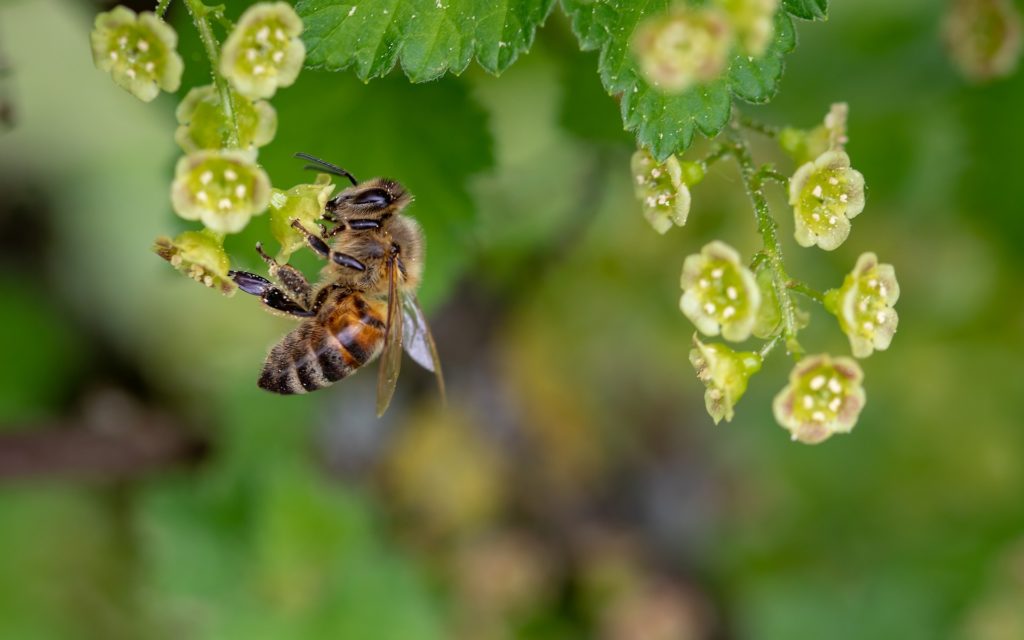Global warming is a dangerous phenomenon affecting the planet, and bees are no exception. As temperature rises, bee swarms have been decreasing dramatically in recent years, which have caught the attention of scientists who are constantly looking for a solution. The key could be in a research conducted by Cornell University, which points at hemp as a possible savior to the bee population.
Endangered bee population could be saved thanks to hemp plantations


A recent study conducted by Cornell University found that the Cannabis Sativa plants can attract up to 16 species of bees, and could be crucial in order to save the bee population that’s already declining around the globe.
The university, located in New York, concluded that despite having no nectar, bees are attracted by the large amounts of pollen produced by hemp (a plant-derived from Cannabis Sativa). Moreover, the bigger the hemp plants, the more diverse the visitors.
In addition, the height of the plant is strongly correlated to the abundance of bees. According to the study, hemp plants measuring two or more meters can attract more bees than short plants.
In total, the study recorded that 16 different varieties of bees were found to swarm the vicinity of hemp crops.
If you want to know more about cannabis, how hemp plants could become a crucial element that would help save the bee population around the globe, and to find out the latest hemp news, download the Hemp.im mobile application.
Hemp plants could become a food source to bees swarms
Bees are pollinating agents par excellence. Through them, the crucial exchange of pollen between flowers takes place, thus allowing the reproduction of seeds and fruits necessary for the survival of the planet.
Unfortunately, due to global warming, abuse of pesticides and the excessive intensification of agriculture, the bee population has decreased dramatically in recent years. The good news is that hemp could help keep entire colonies of bees alive, serving as a substitute to many flowers that are being affected by global warming.
Even in periods of flower shortage, hemp has the capacity to produce enough pollen to nourish a diverse bee community. In this way, hemp would represent a key source of food for insects and a support in the pollination of crops.
“With the increase of its cultivation, producers, landowners, and policy-makers should consider the value of hemp to the bee community and take into account its attractiveness when developing pest control strategies,” recommended the study entitled “Environmental Entomology”.
Hemp plants will not affect the honey produced by the bees
The authors of this research made it clear that despite their association with hemp, bees will not produce honey rich in THC (tetrahydrocannabinol), the psychoactive constituent found in cannabis plants.
Also, the presence of THC in hemp pollen will probably not have an impact on bee development ‘due to the loss of cannabinoid receptors in insects.’
As the cannabis market grows around the world at a fast pace, many related industries are looking to develop this sector. This boom of cannabis or “green rush” as some calls it, could be the missing piece to find a solution to the bee problem worldwide. This would be achievable as a natural consequence of the growing industry, due to countries legalizing the cultivation of cannabis plants and the development of cannabis and industrial hemp sectors.
The growth of the hemp industry could help revitalize the world’s bee population. However, non-chemical methods of pest control will have to be sought to enable bees to obtain the complete nutrients from hemp, necessary for effective and natural development.
__
(Featured image by Myriam Zilles via Pixabay)
DISCLAIMER: This article was written by a third party contributor and does not reflect the opinion of Hemp.im, its management, staff or its associates. Please review our disclaimer for more information.
This article may include forward-looking statements. These forward-looking statements generally are identified by the words “believe,” “project,” “estimate,” “become,” “plan,” “will,” and similar expressions. These forward-looking statements involve known and unknown risks as well as uncertainties, including those discussed in the following cautionary statements and elsewhere in this article and on this site. Although the Company may believe that its expectations are based on reasonable assumptions, the actual results that the Company may achieve may differ materially from any forward-looking statements, which reflect the opinions of the management of the Company only as of the date hereof. Additionally, please make sure to read these important disclosures.
First published in Muy Interesante, a third-party contributor translated and adapted the article from the original. In case of discrepancy, the original will prevail.
Although we made reasonable efforts to provide accurate translations, some parts may be incorrect. Hemp.im assumes no responsibility for errors, omissions or ambiguities in the translations provided on this website. Any person or entity relying on translated content does so at their own risk. Hemp.im is not responsible for losses caused by such reliance on the accuracy or reliability of translated information. If you wish to report an error or inaccuracy in the translation, we encourage you to contact us.



Comments are closed for this post.